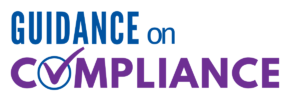Welcome back to our blog series on PDPM! You can find blog #1 here!
The Patient-Driven Payment Model (PDPM) is the reimbursement methodology for Medicare Part A that has been implemented for Skilled Nursing Facilities (SNFs) since October 1, 2019. The PDPM was designed to improve the accuracy of Medicare reimbursement to SNFs by basing the payment on the patient’s clinical characteristics and care needs rather than on the therapy minutes provided. To ensure accurate reimbursement, it is imperative to correctly code the Minimum Data Set (MDS) based on the documentation. It is equally important to enter the information in the appropriate section or item in the MDS. The PDPM is divided into five components. These are: Physical Therapy (PT), Occupational Therapy (OT), Speech-Language Pathology (SLP), Nursing, and Non-Therapy Ancillary (NTA). Each component has MDS sections or items that need to be appropriately coded for the reimbursement to be accurate.
It is recommended that the following resources be utilized to obtain accurate and up-to-date information. Please refer to these resources for any relevant information.
- The Centers for Medicare & Medicaid Services (CMS) – Patient-Driven Payment Model
- Long-Term Care Facility Resident Assessment Instrument (RAI) 3.0 User’s Manual, Version 1.18.11, October 2023
- CMS ICD-10-CM Official Guidelines for Coding and Reporting FY 2024 (October 1, 2023 – September 30, 2024) – Updated October 1, 2023
One common pitfall of the Patient-Driven Payment Model (PDPM) is the failure to code the appropriate MDS item(s) to accurately capture the resident’s clinical presentation. This omission can lead to incorrect reimbursement under the methodology. To avoid this, it is essential to identify the relevant MDS items and ensure that they are coded correctly.
Let us discuss missed opportunities that were identified while auditing the accuracy of MDS. This discussion will help us identify areas where improvements could be made to enhance the accuracy of the MDS.
The primary diagnosis for the SNF stay is coded in MDS item I0020B and is also used to classify the resident into a PDPM clinical category. It is equally important to code the other MDS item(s) related to the coded primary diagnosis.
Example from an audit: a resident was admitted to the SNF following hospitalization for sepsis due to Escherichia coli UTI.
- MDS item I2000B was coded A4151 – Sepsis due to Escherichia coli [E. coli].
- However, MDS item I2100 Septicemia was NOT coded.
- The missed coding of I2100 Septicemia failed to capture the nursing classification group, Special Care High, for the PDPM Nursing component.
- Checking I2100 Septicemia allows the capture of the Special Care High nursing category which provides higher reimbursement than if the diagnosis was not checked.
Example from an audit: a resident was admitted to the SNF following hospitalization for a partial hip implant due to displaced fracture of the left neck of the femur sustained from a fall.
- MDS item I2000B was coded S72.042D – Displaced fracture of base of neck of left femur, subsequent encounter for closed fracture with routine healing.
- MDS item J2100 Recent Surgery Requiring Active SNF Care, was coded a Yes; however, MDS item J2510 Repair fractures of the pelvis, hip, leg, knee, or ankle (not foot), was incorrectly coded.
- The surgical procedure, MDS item J2510, was coded incorrectly, mapping it to the Orthopedic-Surgical Extremities and NOT the Major Joint PDPM Clinical Category. This coding error resulted in the PT and OT components being placed in the Other Orthopedic Clinical Category.
- In this example, the appropriate surgical was J2310 Hip Replacement – partial or total, and the error caused the SNF the opportunity to capture the Major Joint Replacement or Spinal Surgery Clinical Category, which could have impacted the reimbursement rates for the PDPM PT and OT components.
Example from an audit: A resident was admitted to the SNF and one of the physician notes during the 5-day MDS lookback period indicated type II diabetes mellitus. The resident has mild nonproliferative diabetic retinopathy and macular edema of both eyes documented by the physician.
- MDS item I2900 Diabetes Mellitus (DM) (e.g., diabetic retinopathy, nephropathy, and neuropathy) was coded correctly.
- However, the MDS item I8000 Additional active diagnoses did NOT include E11.3213, Type 2 diabetes mellitus with mild nonproliferative diabetic retinopathy with macular edema, bilateral.
- The appropriately coded I2900 Diabetes Mellitus (DM) (e.g., diabetic retinopathy, nephropathy, and neuropathy) captured 2 points for the PDPM NTA component.
- The diagnosis E11.3213, Type 2 diabetes mellitus with mild nonproliferative diabetic retinopathy with macular edema, was NOT listed in MDS item I8000. This has resulted in the failure to capture 1 point under the Proliferative Diabetic Retinopathy and Vitreous Hemorrhage comorbidity for the PDPM NTA component, which may affect the total NTA score.
To avoid coding errors which may lead to a reimbursement underpayment or overpayment, it is necessary to know how each MDS item contributes to the overall assessment of the resident’s clinical presentation. Additionally, having an understanding of the PDPM methodology and how it works is key to identifying the essential MDS item(s) and coding them accurately.
The final review of the MDS coding and documentation is the Triple Check meeting. It is of great importance that SNFs demonstrate accuracy in their coding of the MDS to ensure appropriate Medicare reimbursement. Any inaccuracies in coding could result in over- or under-coding, leading to potential risks, Medicare audits, and inaccurate reimbursement. Therefore, SNFs should consider providing staff regular training and ongoing education to prevent coding errors, promote accuracy, and ultimately lead to appropriate Medicare reimbursement.
Read more about the Pitfalls of the PDPM on blog #3!
LW Consulting, Inc. (LWCI) offers a comprehensive range of services that can assist your organization in maintaining compliance, identifying trends, providing education and training, or conducting documentation and coding audits. For more information, contact LWCI to connect with one of our experts!


